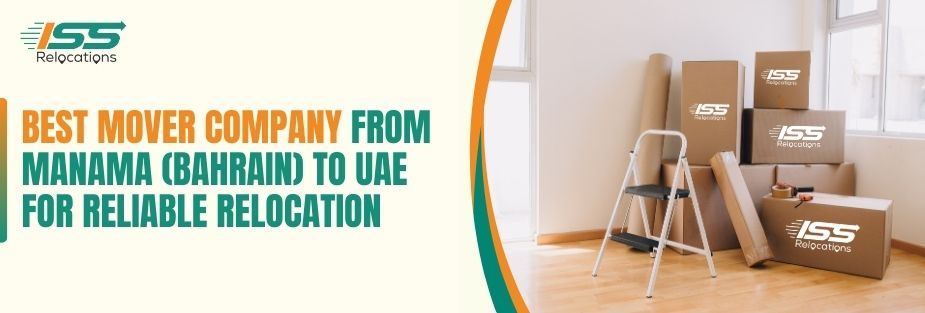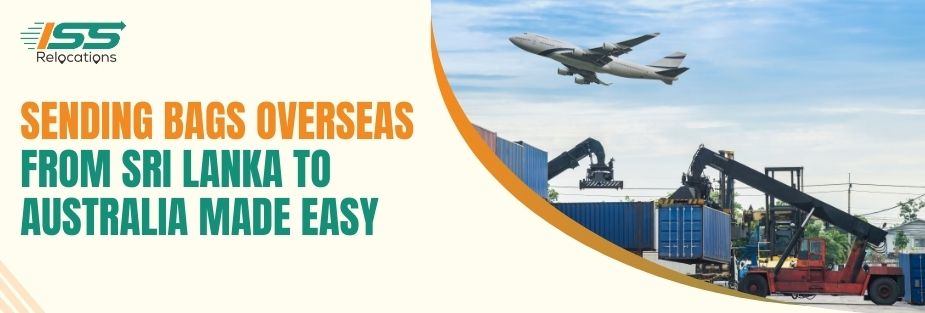
Essential Tips for Moving to Kuwait: A Comprehensive Guide
Moving to a new country can be both exciting and challenging. If you’re considering moving to Kuwait, it’s important to have a comprehensive understanding of the destination and make proper preparations for a smooth transition. This guide aims to provide you with essential tips for moving to Kuwait to ensure a successful relocation experience. Whether it’s understanding Kuwait’s culture and society, navigating the visa process, finding suitable accommodation, or managing your finances, this guide will equip you with valuable information to make your move to Kuwait a seamless one.
Tips for Moving to Kuwait:
Understanding Kuwait’s Culture and Society
Kuwait is a country with a rich cultural heritage and a strong emphasis on traditions and customs. Before moving to Kuwait, it is crucial to familiarize yourself with the local culture and society. Kuwaiti culture is deeply rooted in Arab traditions and Islamic customs. The people of Kuwait are known for their warm hospitality and strong family ties. It is important to respect and appreciate the local customs and traditions to successfully integrate into the society. Adapting to the local culture can enhance your experience and create meaningful connections with the local community.
Tips for Moving to Kuwait
Discover essential tips for moving to Kuwait with this comprehensive guide, covering documentation, housing, culture, and key steps for a smooth relocation.
Visa and Legal Requirements
Obtaining the necessary visa and understanding the legal requirements are fundamental aspects of moving to Kuwait. The visa application process may vary depending on your purpose of relocation, such as employment, investment, or joining family members. It is essential to research and understand the different types of visas available and their specific requirements. Proper documentation, including passports, medical certificates, and sponsorship letters, may be necessary. Ensuring a smooth visa application process is crucial to avoid any delays or complications in your relocation journey.
Finding Accommodation
Securing suitable accommodation is a top priority when moving to Kuwait. The rental market in Kuwait offers a range of options, from apartments to villas, catering to different budgets and preferences. Popular residential areas in Kuwait City, such as Salmiya, Jabriya, and Fintas, offer various amenities and proximity to schools, shopping centers, and entertainment facilities. It is important to research the rental market, consider your needs and preferences, and negotiate rental agreements carefully. Consulting local real estate agents or online platforms can help in finding the right accommodation that meets your requirements.
Healthcare and Insurance
Ensuring access to quality healthcare is essential when moving to a new country. Kuwait has a well-established healthcare system that provides both public international moving services. It is advisable to obtain comprehensive health insurance coverage to protect yourself and your family. Researching and selecting reliable healthcare providers is crucial. Reading reviews, seeking recommendations, and checking the accreditation of medical facilities can help you make informed decisions. Prioritize obtaining health insurance and familiarize yourself with the coverage options available to ensure peace of mind during your stay in Kuwait.
Transportation and Driving in Kuwait
Understanding the transportation options and regulations in Kuwait is important for navigating the country efficiently. Public transportation in Kuwait includes buses, taxis, and ride-hailing services like Uber and Careem. However, owning a private vehicle can offer more convenience, especially if you plan to explore beyond the city limits. To drive in Kuwait, you will need a valid Kuwaiti driving license. The process involves submitting the necessary documents, passing a driving test, and attending a driving course. Familiarize yourself with the local transportation system, including road etiquette, traffic rules, and parking regulations, to ensure a safe and smooth travel experience.
Read Also: Shipping Baggage to South Africa – A Comprehensive Guide
Managing Finances
Managing your finances effectively is crucial when moving to Kuwait. Understanding the banking system and opening a bank account is one of the first steps to take. Kuwait has a well-regulated banking sector with a wide range of local and international banks to choose from. Researching different banks, comparing services and fees, and considering factors like accessibility and online banking options can help you make an informed decision. Understanding currency exchange rates and options for transferring funds internationally is also important. Creating a budget and considering the cost of living in Kuwait will help you plan your finances and ensure a comfortable lifestyle.
Education and Schools
For families with children, selecting suitable schools and understanding the education system in Kuwait is a significant consideration. Kuwait offers a variety of educational options, including public, private, and international schools. Public schools follow the Kuwaiti curriculum, while private and international schools offer different curricula such as British, American, or International Baccalaureate (IB). Researching schools, considering academic standards, extracurricular activities, and admission requirements, and visiting the campuses can help you make an informed choice that best suits your child’s educational needs.
Essential Services and Utilities
Setting up essential services and utilities is a practical aspect of settling into your new home in Kuwait. Electricity, water, and internet services are readily available in most residential areas. Understanding the procedures for connecting these utilities and familiarizing yourself with billing systems will help you avoid any inconvenience. Researching different service providers, comparing prices, and reading customer reviews can assist in choosing reliable providers. Managing utility bills and keeping track of consumption can contribute to effective financial management.
Call Our Experts Today
Language and Communication
While Arabic is the official language of Kuwait, English is widely spoken and understood, especially in urban areas. Learning basic Arabic phrases can enhance your daily interactions and communication with locals. Language learning resources, such as language courses, apps, and online platforms, can assist you in acquiring language skills. Participating in language exchange programs or seeking opportunities to practice Arabic with native speakers can further enhance your language proficiency and cultural integration.
Healthcare and Safety Precautions
Prioritizing your health and safety is essential when moving to Kuwait. Familiarize yourself with healthcare facilities, emergency services, and medical professionals available in your area. It is advisable to maintain a healthy lifestyle, including regular exercise, a balanced diet, and staying hydrated in Kuwait’s hot climate. Familiarize yourself with local customs and laws related to health and safety to ensure compliance. Respecting local norms, such as dress codes and cultural sensitivities, contributes to a safe and positive experience in the country.
Cultural Experiences and Leisure Activities
Kuwait offers a range of cultural and leisure activities to explore and enjoy during your stay. The country is home to historical sites, museums, art galleries, and traditional markets, providing a glimpse into its rich cultural heritage. Exploring places like Kuwait Towers, Souq Al-Mubarakiya, and the Tareq Rajab Museum can be enriching experiences. Engaging in recreational activities, such as water sports, desert camping, and visiting the beautiful beaches along Kuwait’s coastline, can help you make the most of your time in the country. Embracing the cultural experiences and leisure activities available in Kuwait will allow you to immerse yourself in the local lifestyle and create lasting memories.
Conclusion
Moving to Kuwait offers exciting opportunities for personal and professional growth. By following the essential tips provided in this guide, you can ensure a successful relocation experience. From understanding Kuwait’s culture and society to navigating the visa process, finding suitable accommodation, managing finances, and embracing the local experiences, every aspect of your move is important. Embrace the adventure, be open to new experiences, and make the most of the opportunities available in Kuwait. With proper planning, preparation, and an open mind, your relocation to Kuwait can be a rewarding and fulfilling journey.
Plan Stress-free Move with Top Moving Company in UAE - ISS Relocations

Frequently Asked Questions
What should I know before going to Kuwait?
Before moving to Kuwait, you should understand its legal system, culture, and work environment. Kuwait has strict laws regarding dress code, alcohol consumption, and public behavior, which expats must follow. The cost of living can be high, especially for housing, but the country offers a tax-free salary system, making it financially attractive. ISS Relocations ensures a smooth transition by handling visa processes, housing, and logistics so you can settle in without complications.
Can I live in Kuwait permanently?
Living permanently in Kuwait as an expat can be challenging since the country does not offer permanent residency or citizenship to foreigners. Expats typically live on renewable work visas or residency permits, which depend on employment. Sponsorship is required for long-term residence, and most expats leave once their employment ends. ISS Relocations assists in securing work permits and long-term stay arrangements, making it easier for professionals and their families to relocate.
How much money do you need to live comfortably in Kuwait?
The cost of living in Kuwait depends on your lifestyle. A single person can live comfortably on KWD 600-800 per month, while families may need KWD 1,500 or more, mainly due to housing and schooling costs. Rent is the most significant expense, but utilities, transportation, and dining are relatively affordable. Since Kuwait has no income tax, professionals can save more. ISS Relocations offers cost-effective moving services and housing assistance to help manage your budget effectively.
What are the disadvantages of living in Kuwait?
While Kuwait offers financial benefits, there are some challenges. The extreme summer heat, with temperatures exceeding 50°C, can be difficult to endure. Public transportation is limited, leading to traffic congestion. Strict laws regulate social behaviors, which may require cultural adjustment. Additionally, expats may find fewer entertainment options compared to Western countries. ISS Relocations provides personalized relocation services, ensuring you adapt to these challenges smoothly.
What do I need to move to Kuwait?
To move to Kuwait, you need a valid work visa, residency permit, medical clearance, and a police clearance certificate. Employers usually sponsor work visas, but ISS Relocations can assist with the application process, ensuring all paperwork is correctly completed. We also handle shipping, customs clearance, and housing arrangements, allowing you to focus on settling into your new home and workplace without stress.
Why are people moving to Kuwait?
Expats move to Kuwait primarily for career opportunities, tax-free income, and a high standard of living. The country has a strong economy, a demand for skilled professionals, and a multicultural environment. Many professionals in oil, finance, healthcare, and education relocate for lucrative job prospects. Families appreciate the quality healthcare and international schools. ISS Relocations specializes in facilitating smooth moves, helping individuals and families transition effortlessly into life in Kuwait.
What are the major problems in Kuwait?
Kuwait faces several challenges for expats, including intense heat, limited public transport, cultural restrictions, and strict residency laws. Traffic congestion is another common issue due to heavy reliance on private vehicles. Additionally, expats may find it difficult to adjust to conservative social norms. However, ISS Relocations provides expert guidance to help you navigate these challenges, from choosing the right neighborhood to understanding local customs, ensuring a stress-free relocation experience.
Moving Company - Recent Blog
Stay informed and prepared for your next move with our latest blogs on moving services in the UAE. From expert packing tips to international relocation guides, ISS Relocations brings you up-to-date insights to make your moving experience smoother, safer, and stress-free.










